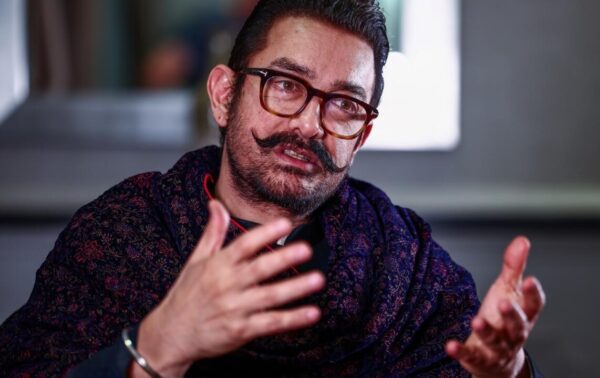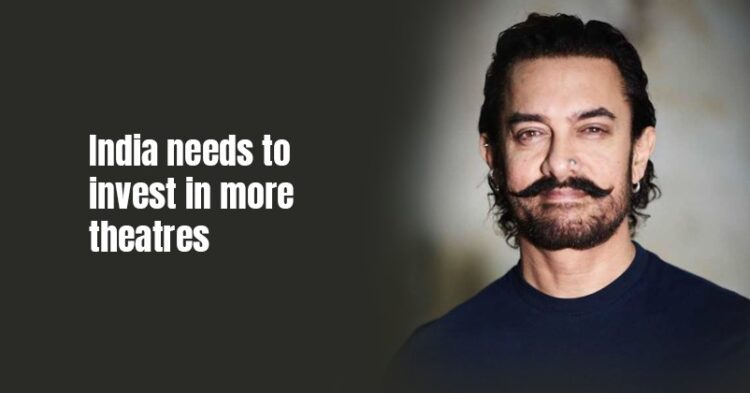Aamir Khan is not just one of the most popular actors of Bollywood but he is also one of those who understand the problems and challenges faced by the industry as he has been a part of it for a long time and recently he spoke on one such challenge.

On the second day of the World Audio Visual and Entertainment Summit which is being organized in Mumbai, Aamir Khan spoke candidly about the urgent need to improve cinema infrastructure across India. The veteran star, who participated in the session “Studios of the Future: Putting India on World Studio Map”, pointed out that while India is a country deeply passionate about films, most of its population lacks access to theatres.
Aamir Khan stressed that a key reason for the stagnation in audience reach lies in the shortage of cinema screens across the country. He emphasized that there are vast regions, including entire districts, where not a single theatre exists. According to him, the lack of adequate screens has been a long-standing barrier to industry growth and it’s an area where urgent investment is required.

Using comparisons to global markets, he revealed that India currently has about 10,000 cinema screens. This is a stark contrast to the United States, which, despite having only one-third of India’s population, has around 40,000 screens. China, even further ahead, boasts approximately 90,000. Within India’s limited count, he noted that half the screens are concentrated in the southern states, leaving around 5,000 for the rest of the country, particularly affecting the reach of Hindi films.
Aamir Khan also highlighted the limited theatrical access for Indian moviegoers, explaining that even the biggest film releases are watched in theatres by a mere two percent of the population. The overwhelming majority, nearly 98 percent, ends up missing out on the theatrical experience, either due to lack of nearby screens or affordability.
He cited specific examples, such as the Konkan region, where entire areas still do not have a single theatre. Residents in such places are often aware of new releases through online buzz but have no means of actually watching the films on the big screen. He concluded by saying that increasing the number of screens — of all types and in all parts of the country — is the most important step the industry can take toward reaching its full potential.

Echoing these sentiments on the first day of the summit, Shah Rukh Khan had also called for the creation of more affordable theatres in smaller towns and cities. He suggested that simpler, lower-cost venues would allow Indian cinema in all languages to be more widely and economically accessible, noting that current models largely cater to expensive, urban settings.
The session also featured insights from producers Ritesh Sidhwani, Dinesh Vijan, Namit Malhotra, PVR Inox founder Ajay Bijli and renowned American film producer Charles Roven, reflecting a shared concern about India’s cinema infrastructure and a growing consensus on the need for change.




